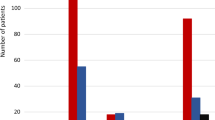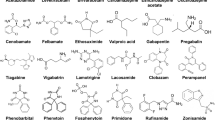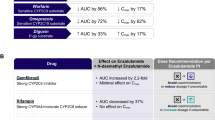Abstract
Hyperprolactinemia, an adverse side-effect of the use of typical and some atypical antipsychotics, has both acute and chronic clinical consequences. When observed in schizophrenic patients, it may be treated by switching the patient to an antipsychotic agent with a lower liability for the induction of hyperprolactinemia. The effects of substituting aripiprazole for other antipsychotic agents on schizophrenic patients with antipsychotic-induced hyperprolactinemia have been previously reported in several studies. Many studies have also noted that aripiprazole can sometimes lead to increases in psychotic symptoms, especially in the period immediately following the switch or when aripiprazole is combined with a dopamine antagonist. Here, we report observations on five female patients who were experiencing symptomatic hyperprolactinemia and psychotic exacerbation while on antipsychotic treatment, yet improved in both conditions after being switched to aripiprazole monotherapy. We also provide a brief review of the existing studies that report the results of switching patients from other antipsychotics to aripiprazole.
Similar content being viewed by others
References
Aihara K, Shimada J, Miwa T et al (2004) The novel antipsychotic aripiprazole is a partial agonist at short and long isoforms of D2 receptors linked to the regulation of adenylyl cyclase activity and prolactin release. Brain Res 1003:9–17
American Psychiatric Association (2000) Diagnostic and statistical manual of mental disorders text rev, 4th edn. American Psychiatric Association Press, Washington, DC
Anghelescu I, Wolf J (2004) Successful switch to aripiprazole after induction of hyperprolactinemia by ziprasidone: a case report. J Clin Psychiatry 65:1286–1287
Burris KD, Molski TF, Xu C et al (2002) Aripiprazole, a novel antipsychotic, is a high-affinity partial agonist at human dopamine D2 receptors. Pharmacol Exp Ther 302:381–389
Byerly MJ, Marcus RN, Tran QV et al (2009) Effects of aripiprazole on prolactin levels in subjects with schizophrenia during cross-titration with risperidone or olanzapine: analysis of a randomized, open-label study. Schizophr Res 107:218–222
Casey DE, Carson WH, Saha AR et al (2003) Switching patients to aripiprazole from other antipsychotic agents: a multicenter randomized study. Psychopharmacology (Berl) 166:391–399
Chen CH, Huang MC, Lu ML (2008) Aripiprazole resolves symptomatic hyperprolactinemia in a male schizophrenic patient. Prog Neuropsychopharmacol Biol Psychiatry 32:893–894
Haddad PM, Wieck A (2004) Antipsychotic-induced hyperprolactinaemia: mechanisms, clinical features and management. Drugs 64:2291–2314
Jordan S, Koprivica V, Chen R et al (2002) The antipsychotic aripiprazole is a potent, partial agonist at the human 5-HT1A receptor. Eur J Pharmacol 441:137–140
Kay SR, Fiszbein A, Opler LA (1987) The Positive and Negative Syndrome Scale (PANSS) for schizophrenia. Schizophr Bull 13:261–276
Kim CY, Chung S, Lee JN et al (2009) A 12-week, naturalistic switch study of the efficacy and tolerability of aripiprazole in stable outpatients with schizophrenia or schizoaffective disorder. Int Clin Psychopharmacol 24:181–188
Kinon BJ, Basson BR, Gilmore JA et al (2000) Strategies for switching from conventional antipsychotic drugs or risperidone to olanzapine. J Clin Psychiatry 61:833–840
Lee BH, Kim YK, Park SH (2006) Using aripiprazole to resolve antipsychotic-induced symptomatic hyperprolactinemia: a pilot study. Prog Neuropsychopharmacol Biol Psychiatry 30:714–717
Lorenz RA, Weinstein B (2007) Resolution of haloperidol-induced hyperprolactinemia with aripiprazole. J Clin Psychopharmacol 27:524–525
Lu ML, Shen WW, Chen CH (2008) Time course of the changes in antipsychotic-induced hyperprolactinemia following the switch to aripiprazole. Prog Neuropsychopharmacol Biol Psychiatry 32:1978–1981
Mamo D, Graff A, Mizrahi R et al (2007) Differential effects of aripiprazole on D(2), 5-HT(2), and 5-HT(1A) receptor occupancy in patients with schizophrenia: a triple tracer PET study. Am J Psychiatry 164:1411–1417
Marder SR, McQuade RD, Stock E et al (2003) Aripiprazole in the treatment of schizophrenia: safety and tolerability in short-term, placebo-controlled trials. Schizophr Res 61:123–136
Mir A, Shivakumar K, Williamson RJ et al (2008) Change in sexual dysfunction with aripiprazole: a switching or add-on study. J Psychopharmacol 22:244–253
Montejo AL (2008) Prolactin awareness: an essential consideration for physical health in schizophrenia. Eur Neuropsychopharmacol 18:108–114
Overall JE, Gorham DR (1962) The brief psychiatric rating scale. Psychol Rep 10:799–812
Pae CU, Serretti A, Chiesa A et al (2009) Immediate versus gradual suspension of previous treatments during switch to aripiprazole: results of a randomized, open label study. Eur Neuropsychopharmacol 19:562–570
Paulzen M, Gründer G (2007) Amisulpride-induced hyperprolactinaemia is not reversed by addition of aripiprazole. Int J Neuropsychopharmacol 10:149–151
Peuskens J (2000) Switching approach in the management of schizophrenia patients. Int Clin Psychopharmacol 15:15–19
Potkin SG, Saha AR, Kujawa MJ et al (2003) Aripiprazole, an antipsychotic with a novel mechanism of action, and risperidone vs placebo in patients with schizophrenia and schizoaffective disorder. Arch Gen Psychiatry 60:681–690
Raja M (2007) Improvement or worsening of psychotic symptoms after treatment with low doses of aripiprazole. Int J Neuropsychopharmacol 10:107–110
Ramaswamy S, Vijay D, William M et al (2004) Aripiprazole possibly worsens psychosis. Int Clin Psychopharmacol 19:45–48
Remington G, Chue P, Stip E et al (2005) The crossover approach to switching antipsychotics: what is the evidence? Schizophr Res 76:267–272
Shim JC, Shin JG, Kelly DL et al (2007) Adjunctive treatment with a dopamine partial agonist, aripiprazole, for antipsychotic-induced hyperprolactinemia: a placebo-controlled trial. Am J Psychiatry 164:1404–1410
Szarfman A, Tonning JM, Levine JG et al (2006) Atypical antipsychotics and pituitary tumors: a pharmacovigilance study. Pharmacotherapy 26:748–758
Wahl R, Ostroff R (2005) Reversal of symptomatic hyperprolactinemia by aripiprazole. Am J Psychiatry 162:1542–1543
Weiden PJ, Buckley PF (2007) Reducing the burden of side effects during long-term antipsychotic therapy: the role of “switching” medications. J Clin Psychiatry 68:14–23
Wolf J, Fiedler U (2007) Hyperprolactinemia and amenorrhea associated with olanzapine normalized after addition of aripiprazole. J Clin Pharm Ther 32:197–198
Author information
Authors and Affiliations
Corresponding author
Rights and permissions
About this article
Cite this article
Kuloglu, M., Ekinci, O., Albayrak, Y. et al. Benefits of switching women schizophrenic patients to aripiprazole: a case study and brief review of the literature. Arch Womens Ment Health 13, 443–447 (2010). https://doi.org/10.1007/s00737-010-0150-x
Received:
Accepted:
Published:
Issue Date:
DOI: https://doi.org/10.1007/s00737-010-0150-x




